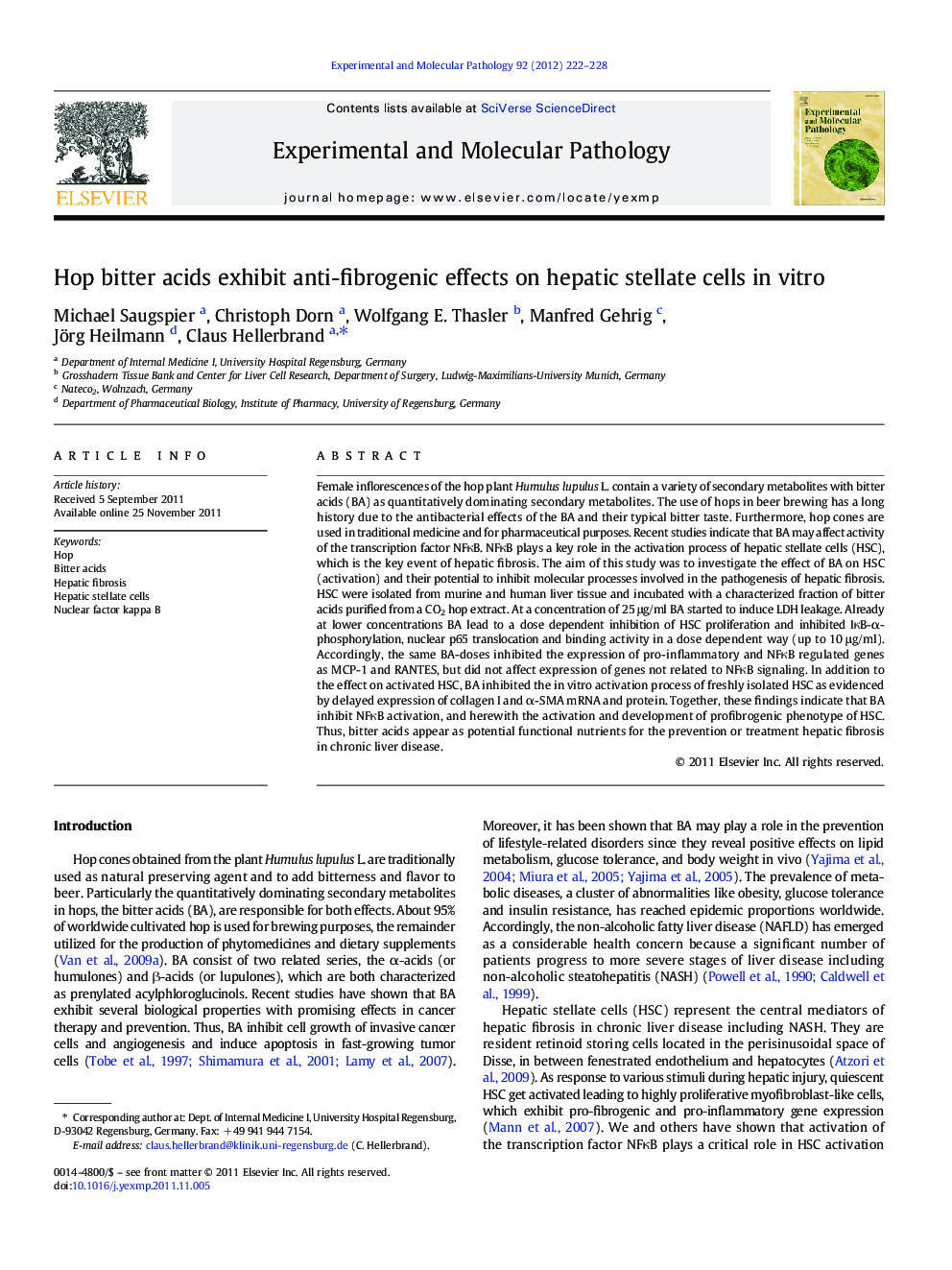| کد مقاله | کد نشریه | سال انتشار | مقاله انگلیسی | نسخه تمام متن |
|---|---|---|---|---|
| 2775158 | 1152313 | 2012 | 7 صفحه PDF | دانلود رایگان |

Female inflorescences of the hop plant Humulus lupulus L. contain a variety of secondary metabolites with bitter acids (BA) as quantitatively dominating secondary metabolites. The use of hops in beer brewing has a long history due to the antibacterial effects of the BA and their typical bitter taste. Furthermore, hop cones are used in traditional medicine and for pharmaceutical purposes. Recent studies indicate that BA may affect activity of the transcription factor NFκB. NFκB plays a key role in the activation process of hepatic stellate cells (HSC), which is the key event of hepatic fibrosis. The aim of this study was to investigate the effect of BA on HSC (activation) and their potential to inhibit molecular processes involved in the pathogenesis of hepatic fibrosis. HSC were isolated from murine and human liver tissue and incubated with a characterized fraction of bitter acids purified from a CO2 hop extract. At a concentration of 25 μg/ml BA started to induce LDH leakage. Already at lower concentrations BA lead to a dose dependent inhibition of HSC proliferation and inhibited IκB-α-phosphorylation, nuclear p65 translocation and binding activity in a dose dependent way (up to 10 μg/ml). Accordingly, the same BA-doses inhibited the expression of pro-inflammatory and NFκB regulated genes as MCP-1 and RANTES, but did not affect expression of genes not related to NFκB signaling. In addition to the effect on activated HSC, BA inhibited the in vitro activation process of freshly isolated HSC as evidenced by delayed expression of collagen I and α-SMA mRNA and protein. Together, these findings indicate that BA inhibit NFκB activation, and herewith the activation and development of profibrogenic phenotype of HSC. Thus, bitter acids appear as potential functional nutrients for the prevention or treatment hepatic fibrosis in chronic liver disease.
► Bitter acids (BA) inhibit the activation of hepatic stellate cells.
► BA exhibit anti-fibrogenic effects on already activated hepatic stellate cells.
► BA inhibit NFκB activity in hepatic stellate cells.
► BA have potential for the prevention or treatment of hepatic fibrosis.
Journal: Experimental and Molecular Pathology - Volume 92, Issue 2, April 2012, Pages 222–228